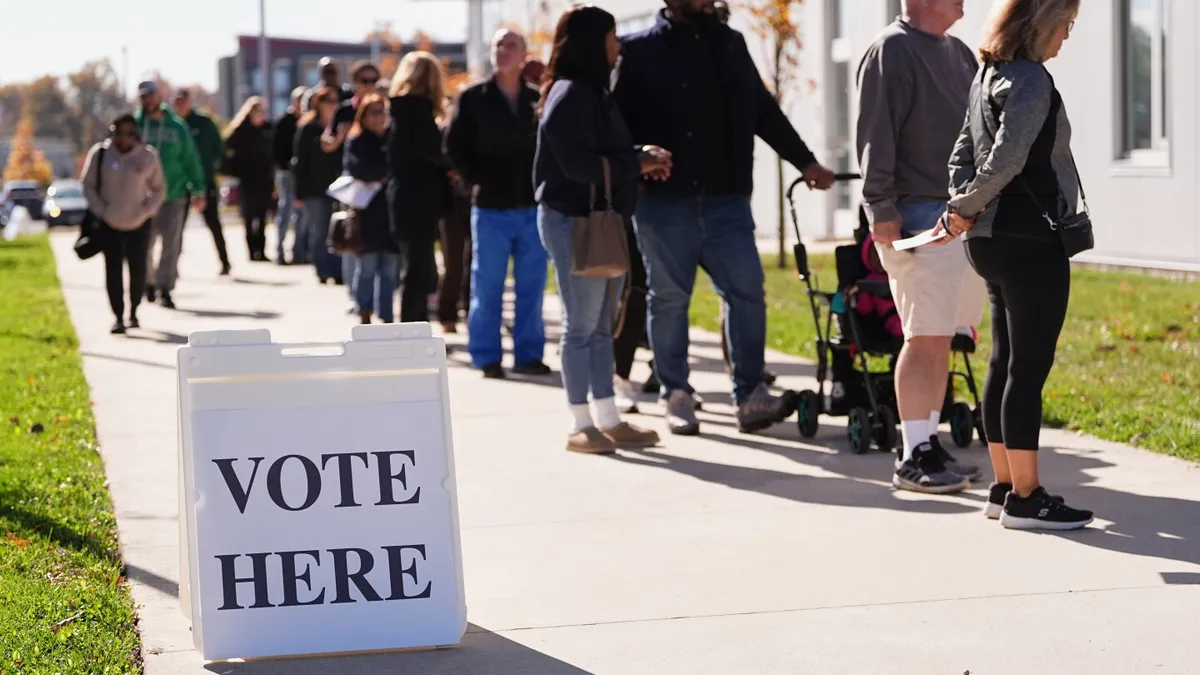
NEW YORK (AP) — A federal judge has ruled that President Donald Trump’s request to implement a documentary proof of citizenship requirement on the federal voter registration form cannot be enforced. This significant decision was made by U.S. District Judge Colleen Kollar-Kotelly in Washington, D.C., who sided with Democratic and civil rights groups that challenged the Trump administration over its executive order aimed at overhauling U.S. elections.
In her ruling, Judge Kollar-Kotelly stated that the proof-of-citizenship directive is an unconstitutional violation of the separation of powers. This ruling represents a setback for the Trump administration and its supporters, who have argued that such a mandate is essential for restoring public confidence in the integrity of U.S. elections by ensuring that only American citizens can vote.
“Because our Constitution assigns responsibility for election regulation to the States and to Congress, this Court holds that the President lacks the authority to direct such changes,” Kollar-Kotelly wrote in her opinion. She further emphasized that when it comes to establishing qualifications for voting and regulating federal election procedures, “the Constitution assigns no direct role to the President in either domain.”
The ruling not only grants the plaintiffs a partial summary judgment but also permanently prohibits the U.S. Election Assistance Commission from taking any action to implement the proof-of-citizenship requirement. This requirement has been a contentious issue, with significant implications for voter registration and participation.
Sophia Lin Lakin of the ACLU, one of the plaintiffs in the case, hailed the ruling as “a clear victory for our democracy,” asserting that Trump’s effort to impose a documentary proof of citizenship requirement is an “unconstitutional power grab.”
While the documentary proof of citizenship initiative has been a priority for Republicans, its implementation has faced numerous challenges. The U.S. House passed a citizenship mandate last spring, but it has stalled in the Senate. Additionally, various attempts to enact similar legislation at the state level have encountered significant obstacles.
These proof-of-citizenship requirements have often led to confusion and complications for voters. For instance, married women who have changed their names may be required to present not only state IDs but also birth and marriage certificates. Such complications became evident earlier this year when New Hampshire enacted a proof-of-citizenship requirement for local elections, causing confusion among voters.
In Kansas, a similar requirement was in effect for three years before being overturned in federal court, during which time approximately 30,000 eligible individuals were barred from registering to vote. Furthermore, studies indicate that voting by noncitizens is a rare occurrence, undermining the rationale for such stringent requirements.
The lawsuit initiated by the Democratic National Committee (DNC) and various civil rights organizations will continue, allowing the judge to consider additional challenges to Trump’s order. This includes a controversial requirement that all mailed ballots be received by Election Day, rather than just postmarked by that date. Other lawsuits against Trump’s election executive order are also currently in progress.
In early April, 19 Democratic state attorneys general filed a separate lawsuit urging a federal court to reject Trump’s executive order. Following this, Washington and Oregon, where the majority of voting occurs through mailed ballots, initiated their own legal action against the order.
As the legal battles continue, the implications of these rulings and challenges will significantly impact the future of voting regulations and electoral integrity in the United States.